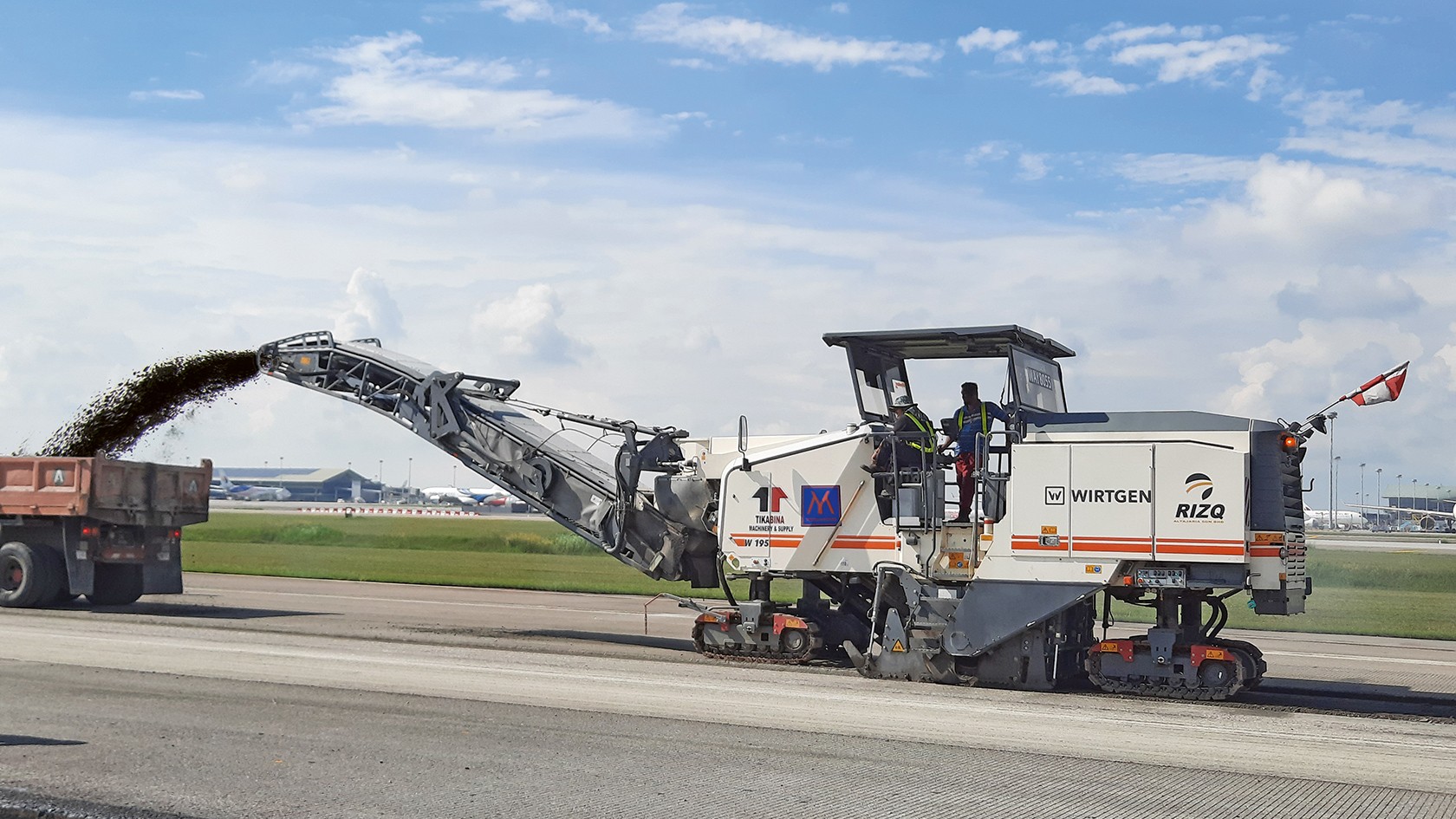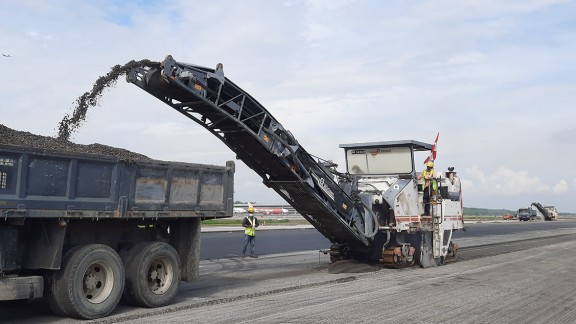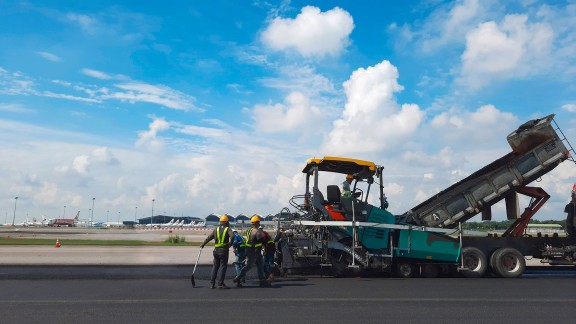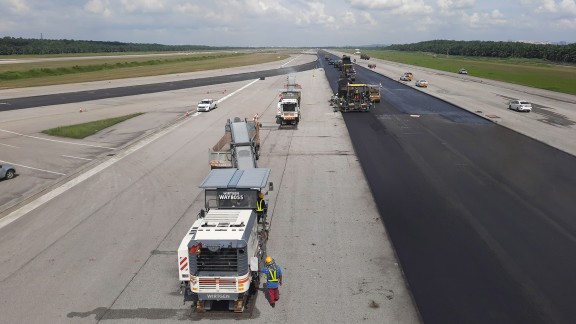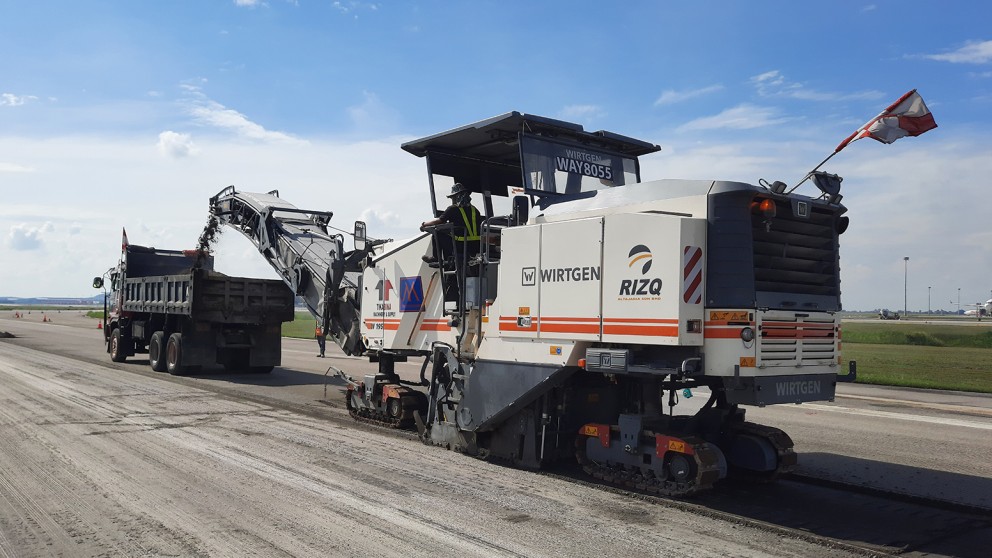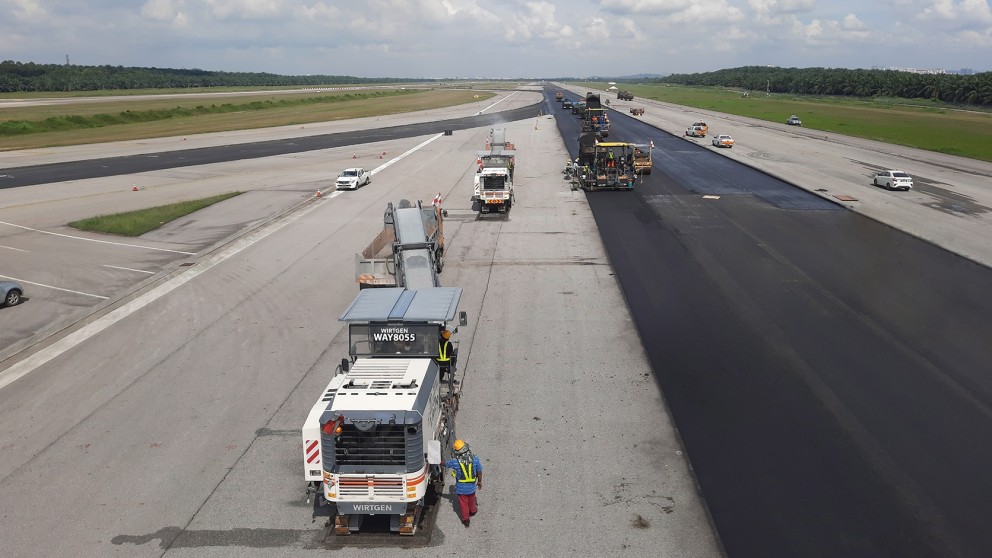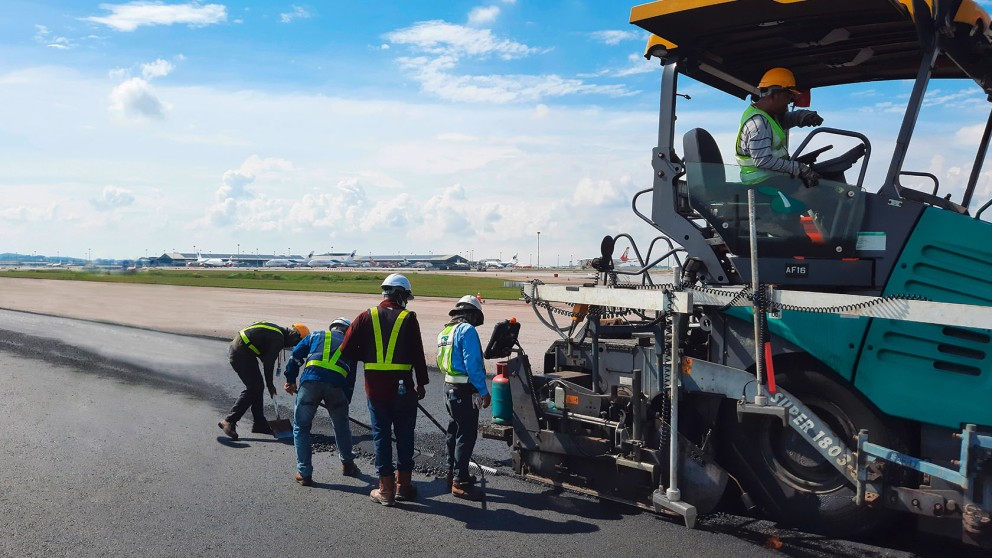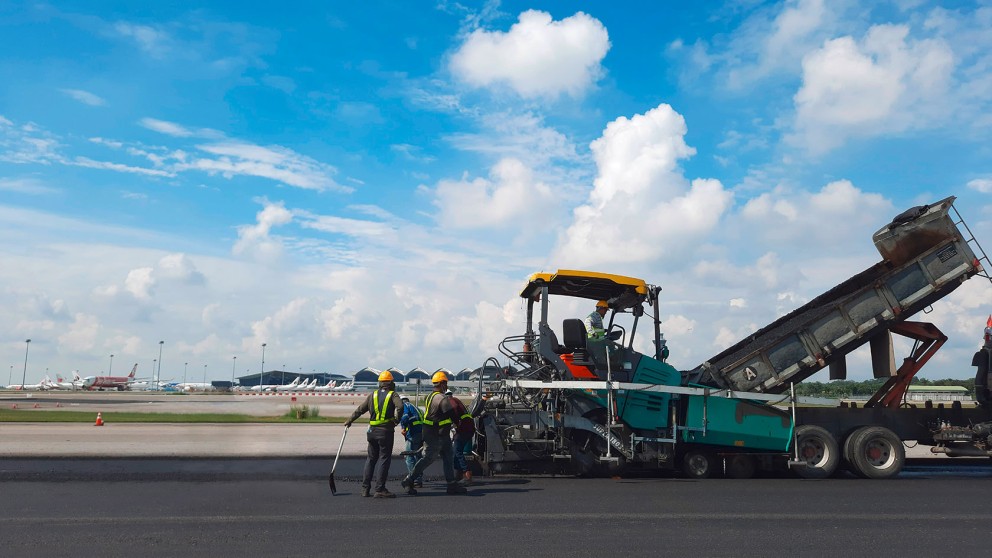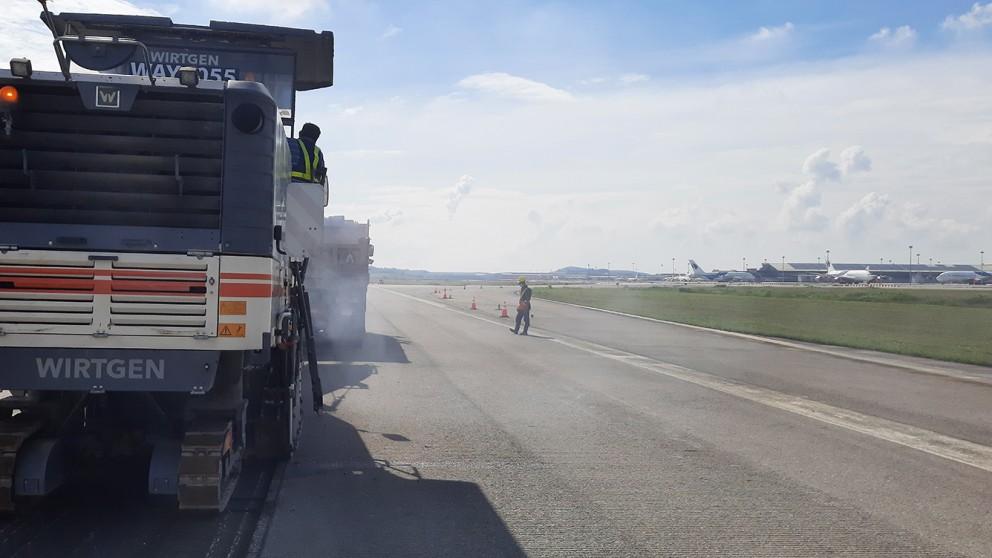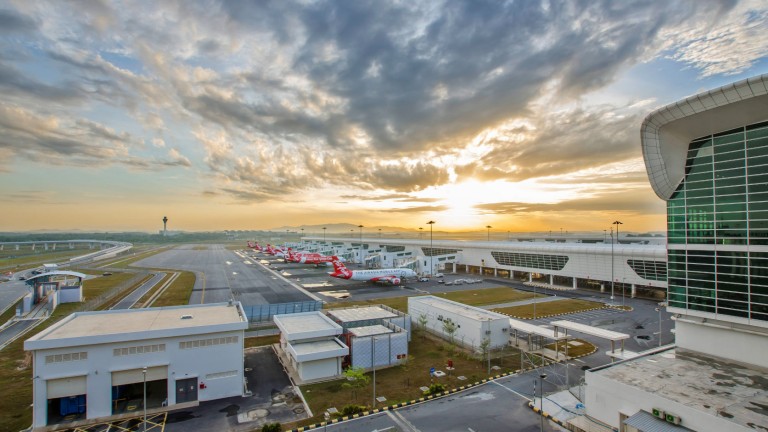Cold milling machines ideally equipped for the job
All of the machine types deployed here are distinguished by high engine power, outstanding milling performance and a flexibility that allows them to work efficiently and effectively in almost any milling scenario. When fitted with a two-meter standard milling drum, each of the W 195 and W 205 large milling machines can remove material to an impressive depth of 33 cm.
The milling drum speed on these models can be set to 104, 116 or 129 rpm directly from the operator’s platform , which means that the ideal settings can be conveniently selected according to requirements for a range of different milling depths and speeds. This either reduces fuel consumption and pick wear or contributes to performance maximisation. In view of the different milling depths required, this proved to be a particularly valuable advantage on the project in Malaysia. At the same time, the machines had to contend with an extremely resistant milling material consisting of porous mastic asphalt (PMA), and that meant that considerable force would be required for milling off such hard layers. Choosing exactly the right round-shank pick is essential for ensuring high cutting performance and long service life of the picks. Nippon Road and the Wirtgen Group sales and service organization in Malaysia agreed on the use of genuine Wirtgen carbide-tipped round-shank picks on the project due to their exceptional cutting performance.
‘We know from years of experience that Wirtgen cold milling machines are extremely productive and versatile machines. Our new W 195 and W 205 machines are particularly impressive thanks to their tremendous engine power, rapid advance rates and exceptional milling performance’, reports Ir Wan Zainuddin. ‘In addition, the W 195 is suitable for all typical milling applications in the two-meter class and, thanks to its low diesel fuel and pick consumption, is a particularly cost-effective machine.
